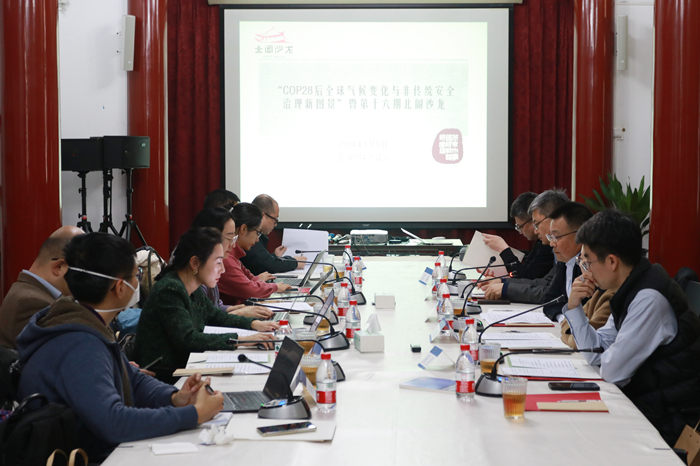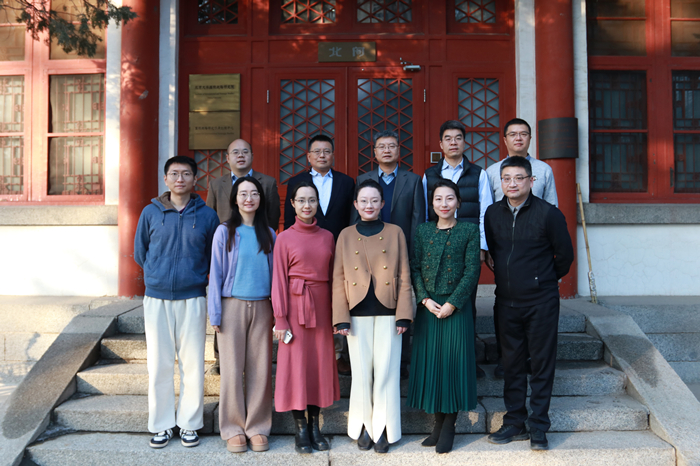On January 5, 2024, the Institute of International Strategic Studies (IISS), Peking University (PKU) held the seminar "New Perspectives on Global Climate Change and Non-Traditional Security Governance after COP28," and the 16th session of the North Pavilion Salon.

Experts and scholars from higher-education and research institutions such as the Asian Infrastructure Investment Bank, the Chinese Academy of Social Sciences, the Chinese Academy of Agricultural Sciences, the National Center for Climate Change Strategy and International Cooperation, Peking University, Tsinghua University, and the China Foreign Affairs University were invited to the seminar for in-depth discussions. Prof. Yu Tiejun, President of IISS, PKU, and Prof. Zhang Haibin, Deputy Dean of the School of International Studies (SIS), PKU, attended the meeting and delivered speeches. The seminar was chaired by Assistant Professor Xu Qinyi from SIS, PKU.

The “North Pavilion Salon” aims at promoting deepened dialogue between theoretical research and policy studies, providing a platform for exchange of ideas among young and middle-aged scholars. The experts focused on global climate governance in the context of COP28. Discussions centered on specific COP28 topics such as global adaptation, the global stocktake, "just transition," loss and damage, and transparency, as well as new observations on China's leadership in global climate governance and the challenges and opportunities for multilateral institutions in addressing climate change. The experts pinpointed that China has played a key role in maintaining and shaping a fair and just international climate governance order by actively practicing its important roles as a participant, contributor, and leader in the global climate governance process. According to them, the conference achieved important consensus on promoting a just transition work program, accelerating energy transition, and opposing unilateral measures. However, global climate governance still faces multiple challenges, such as the increasing complexity of governance issues, divergence of national interests, uneven distribution of funds, regional conflicts, and geopolitical confrontations. There is a need for strengthened research in related areas, active exploration of ways to consolidate the achievements of multilateral climate cooperation, and continuous improvement of relevant mechanisms.
Editor: Li Fangqi Photography: Zheng Peijie

